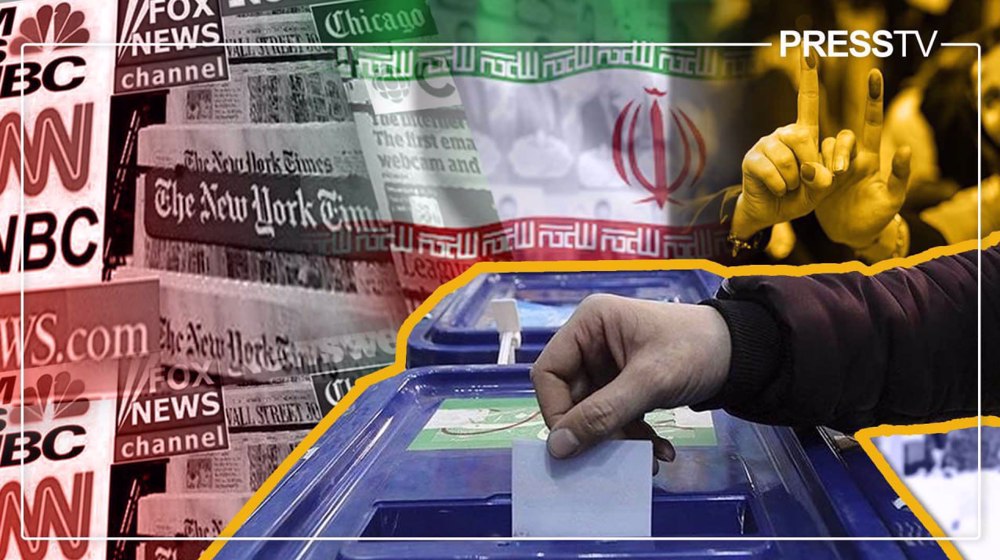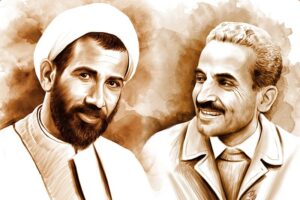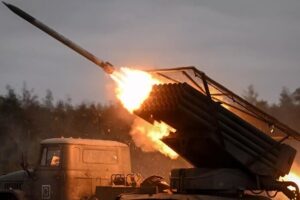By Alireza Ahmedi
The official turnout in the Iranian parliament and the Assembly of Experts elections is yet to be announced, but preliminary results suggest that more than 40 percent of voters exercised their franchise, rejecting calls from hostile Western regimes and their media to boycott the polls.
The voting lines opened at 8 a.m. local time on Friday and ballots were cast at 60,000 polling stations across the country, extended three times and eventually closing at the stroke of midnight.
More than 15,000 candidates competed for 290 seats in the parliament (Majlis), and 144 candidates were vying for 88 seats in the Assembly of Experts, a high-profile clerical body tasked to appoint the Leader of the Islamic Revolution.
Leader of the Islamic Revolution Ayatollah Seyyed Ali Khamenei, after casting his vote early on Friday, urged the Iranian nation to “make friends happy and ill-wishers disappointed in the elections.”
A total of 61.17 million people, comprising 30.94 million men and 30.22 million women, were eligible to vote in the two elections, with preliminary results suggesting that around 25 million cast their ballots.
More than 350 foreign reporters from 160 different media outlets were present in Iran to cover the elections, according to the media affairs department of the Ministry of Culture and Islamic Guidance.
Taking into account the aggressively negative media reportage of these elections before the ballots were cast, observers see it as a big slap for all those who thought polling booths would be empty.
People came out in large numbers, both in Tehran and other major cities across the country, to exercise their voting rights, thwarting the plots hatched by trouble-mongers and naysayers.
The fact that the turnout matched that of the 2020 parliamentary elections shows that enemy plots failed miserably. They left no stone unturned since 2021 to create hopelessness among Iranians.
Western media showed open hostility in these elections, not towards the candidates and their policies, and not towards the absence of certain candidates, but to the fact that the elections were taking place.
The fact that the Islamic Republic of Iran is a thriving democracy unlike many monarchies in West Asia and banana republics in the West, is hard to swallow for hostile powers.
Even before the votes were cast, propaganda voices in the West issued premature verdicts, with some even predicting less than 10 percent turnout and some suggesting that the Iranian system was rotting.
This hostility is not new though. It has persisted since the Islamic Revolution of 1979 when the Iranian nation rejected the Western hegemonic system and asserted its independence and political sovereignty through the Islamic Revolution.
It is reflected by half a century of irreconcilability with the 1979 referendum, where over 99 percent of Iranian citizens voted for Imam Khomeini’s idea of an Islamic Republic.
Two days before this year’s elections, Ayatollah Seyyed Ali Khamenei said before 1979 there were sham elections in which candidates were determined by the Pahlavi dictatorial regime and sometimes even by foreign embassies.
“The US, most Europeans, the evil Zionists, capitalists and big companies that follow Iran’s affairs closely with various motives and reasons are more than anything else afraid of the Iranian people’s participation in the elections and their power,” he said.
After the success of the Islamic Revolution and the establishment of the Islamic Republic, Western hostile powers have tried other wicked methods to undermine the country’s democracy.
They have repeatedly proven that they do not care about the true will of the people, not only in Iran but also in other countries where governments are not willing to submit or surrender.
At the same time, they have shown no inclination to criticize the puppet regimes and monarchies where democracy is still an alien concept, where people have no say in political affairs.
This time, even before the opening of the polls, Western media termed the elections a “sham”, while urging people not to vote. It was in line with their hostile approach toward the Islamic Republic.
Some Western media outlets tried to manipulate their audiences by showing a few half-empty polling stations out of 60,000 of them across the country.
According to the known pattern, they referred to the news about disqualified candidates, as if prescribed conditions for parliamentary hopefuls do not exist in all other countries with elections.
The calls urging people to vote were described as a kind of “desperate act for survival,” although authorities in every democracy call people to vote before elections.
Linking turnout with the legitimacy of the entire political system is not only absurd but hypocritical. Low turnout has been a common phenomenon in other countries as well, including in the West.
Over the last two years, such trends have been widely reported in the German, French and British media, especially in the context of elections of secondary importance.
In 2022, German media wrote that “a dramatic drop in voter turnout has set off alarm bells across the country,” wondering if Germans are weary of voting or fed up with all politics in general.
They mentioned that in the most populous state, the turnout fell to 50 percent, and in some districts even to 20 percent, breaking historical records, while citizens talked about lies and skyrocketing prices.
In the same year, the French media wrote about more than 52 percent abstainers in the legislative elections, and about 57% abstainers five years earlier, stating that the turnout had fallen by 20 percent in 15 years. That was not dubbed the “lack of political legitimacy.”
A record-low turnout is also predicted for the UK general elections this year. British media cites the great similarity and extreme boredom of the two main parties in the country as the reason for this.
Unlike the Iranian case, no media questioned the legitimacy of the German, French and British regimes.
Alireza Ahmedi is a Tehran-based journalist and political commentator.
(The views expressed in this article do not necessarily reflect those of Press TV)




